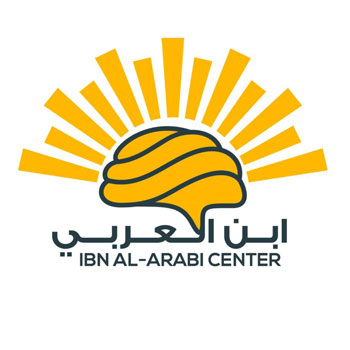The Impact of Spatial Problem-Based Learning (SPBL) Strategy in Teaching Geography on Developing Problem-Solving Skills: A Case Study on Drought and Water Scarcity in Taza, Morocco
DOI:
https://doi.org/10.56989/benkj.v5i4.1418Keywords:
Spatial problem , Based Learning (SPBL) , Problem-Solving Skills , Geography EducationAbstract
This study investigates the effectiveness of the Spatial Problem-Based Learning (SPBL) strategy in enhancing problem-solving skills among first-year Baccalaureate science students compared to the traditional problem-solving approach. It also explores the integration of geography education with local environmental issues, such as drought and water scarcity, to raise students' environmental awareness.
Using a quasi-experimental design, the study involved two groups of secondary students in Taza, Morocco. The experimental group (33 students) engaged in SPBL activities, while the control group (34 students) followed the traditional approach. Data collection relied on performance assessment rubric and a learner perception survey.
The study reached a set of findings, most notably:1) The effectiveness of the SPBL strategy in developing problem-solving skills among geography learners, 2) The experimental group outperformed the control group in performance indicators related to problem-solving, 3) Some learners faced difficulties adapting to the new approach, which requires providing additional support to better integrate them, 4) The null hypothesis was rejected, and the alternative hypothesis confirming the superiority of the SPBL strategy was validated.
The study recommends expanding the use of this strategy in teaching geography, providing training programs for teachers to ensure its effective implementation, revising curricula to incorporate real environmental issues, encouraging research and exploration to enhance problem-solving skills, and conducting continuous evaluation studies to measure the impact of SPBL on learners’ motivation.
Metrics
References
- بوعيش، حسين، العمراني، سكينة، & العمراني، عبد الواحد. (2024). دراسة وتحليل آثار التغايرية المناخية على الموارد المائية بمنطقة تازة. مجلة العلوم الإنسانية والطبيعية (HNSJ)، 5(12)، 265. https://doi.org/10.53796/hnsj512/19
- الزغلول، رافع النصير، والزغلول، عماد عبد الرحيم. (2014). علم النفس المعرفي (الطبعة الأولى). دار الشروق للنشر والتوزيع.
- سللي، عبد العالي. (2022). المقاربة التكاملية في التدريس بالكتاب المدرسي لمادتي الجغرافيا وعلوم الحياة والأرض بالمرحلة الثانوية التأهيلية بالنظام التعليمي المغربي. مجلة ابن خلدون للدراسات والأبحاث، 2(15)، 91.
- ناصر الدين، إبراهيم أبو حماد. (2017). المهارات الحياتية: الشخصية - الاجتماعية – المعرفية (الطبعة الأولى). دار المسيرة للنشر والتوزيع، عمان.
المراجع الأجنبية
- Bentil, S., & Ababio, B. T. A. (2020, June). Benefits of adopting problem-based learning in geography education: Standpoint of students and instructors (p. 1). Retrieved from https://www.researchgate.net/publication/341978524
- Bendl, T., Marada, M., & Havelková, L. (2023). Preservice geography teachers’ exposure to problem solving and different teaching styles. Journal of Geography, 122(3), 66–76. https://doi.org/10.1080/00221341.2023.2220114
- Karpudewana, M., Roth, W.-M., & Abdullah, M. N. S. B. (2015). Enhancing primary school students’ knowledge about global warming and environmental attitude using climate change activities. International Journal of Science Education, 37(1), 31–54. https://doi.org/10.1080/09500693.2014.958600
- Laaloua, H. (2023). The role of education in addressing environmental challenges: A study of environmental education integration in Moroccan geography textbooks. International Journal of Social Science and Human Research, 6(4), 2317-2325. https://doi.org/10.47191/ijsshr/v6-i4-41
- Lamrani, K., Algouti, A., Tabit, A., Hadach, F., Majdouli, K., Lakhlili, M., Laadimi, Y., Oudour, K., El Myr, A., Ben Elhamdi, S., & Ben Tabet, C. (2023, December 4-5). Understanding drought in Morocco: A special look at the Haouz Plain (p. 2). Paper presented at the 2nd International Conference on Frontiers in Academic Research, Konya, Turkey. AS-Proceedings. https://doi.org/10.59287/as-proceedings.533
- Silviariza, W. Y., Sumarmi, & Handoyo, B. (2020). Using of Spatial Problem-Based Learning (SPBL) model in geography education for developing critical thinking skills. Journal for the Education of Gifted Young Scientists, 8(3), 1045-1046. https://doi.org/10.34822/jegys.2020.360X
- Silviariza, W. Y., Sumarmi, & Handoyo, B. (2021). Improving critical thinking skills of geography students with spatial problem-based learning (SPBL). International Journal of Instruction, 14(3), 133-152. https://doi.org/10.29333/iji.2021.1438a
- United Nations Environment Programme (UNEP). (2012). UNEP Annual Report 2012 (p. 20).
Downloads
Published
How to Cite
Issue
Section
License
Copyright (c) 2025 Ibn Khaldoun Journal for Studies and Researches

This work is licensed under a Creative Commons Attribution-NonCommercial 4.0 International License.































 ElDjawda Soft
ElDjawda Soft